Intel Core i3-9100F Benchmarks
For this exercise, we are using our legacy Linux-Bench scripts which help us see cross-platform “least common denominator” results we have been using for years as well as several results from our updated Linux-Bench2 scripts. At this point, our benchmarking sessions take days to run and we are generating well over a thousand data points. We are also running workloads for software companies that want to see how their software works on the latest hardware. As a result, this is a small sample of the data we are collecting and can share publicly. Our position is always that we are happy to provide some free data but we also have services to let companies run their own workloads in our lab, such as with our DemoEval service. What we do provide is an extremely controlled environment where we know every step is exactly the same and each run is done in a real-world data center, not a test bench.
We are going to show off a few results, and highlight a number of interesting data points in this article.
Python Linux 4.4.2 Kernel Compile Benchmark
This is one of the most requested benchmarks for STH over the past few years. The task was simple, we have a standard configuration file, the Linux 4.4.2 kernel from kernel.org, and make the standard auto-generated configuration utilizing every thread in the system. We are expressing results in terms of compiles per hour to make the results easier to read:
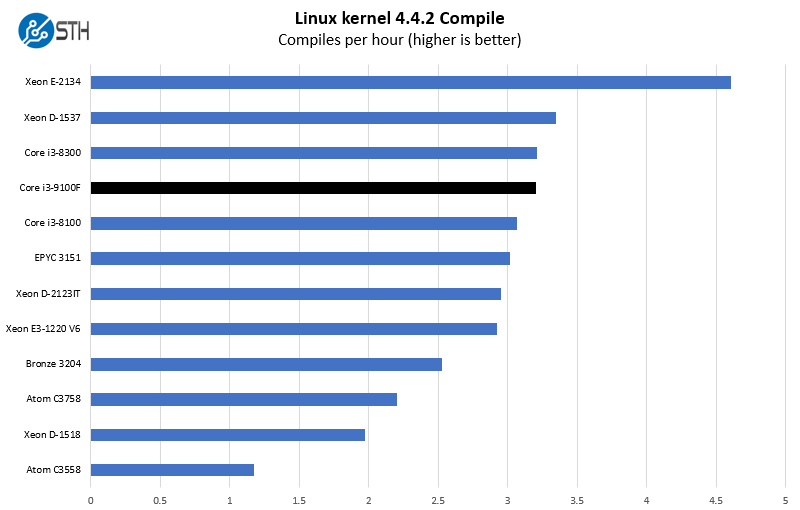
Here we can see a really interesting result. The Intel Core i3-8300 has a slightly higher base clock but lacks turbo clock speeds like the Core i3-9100 and Core i3-9100F. What it has, and is important here, is 8MB of cache versus 6MB on the Core i3-9100F. As we saw in our recent AMD EPYC 7642 review, this workload is not just core/ clock dependent, but large deltas in cache sizes can have an impact. Here, 2MB may not sound like a lot when that EPYC 7642 has a 256MB L3 cache and 24MB of L2 cache, but it is also 33% more than the Core i3-9100F. Clock speed is not everything and in our compile test, cache matters.
c-ray 1.1 Performance
We have been using c-ray for our performance testing for years now. It is a ray tracing benchmark that is extremely popular to show differences in processors under multi-threaded workloads. We are going to use our 8K results which work well at this end of the performance spectrum.
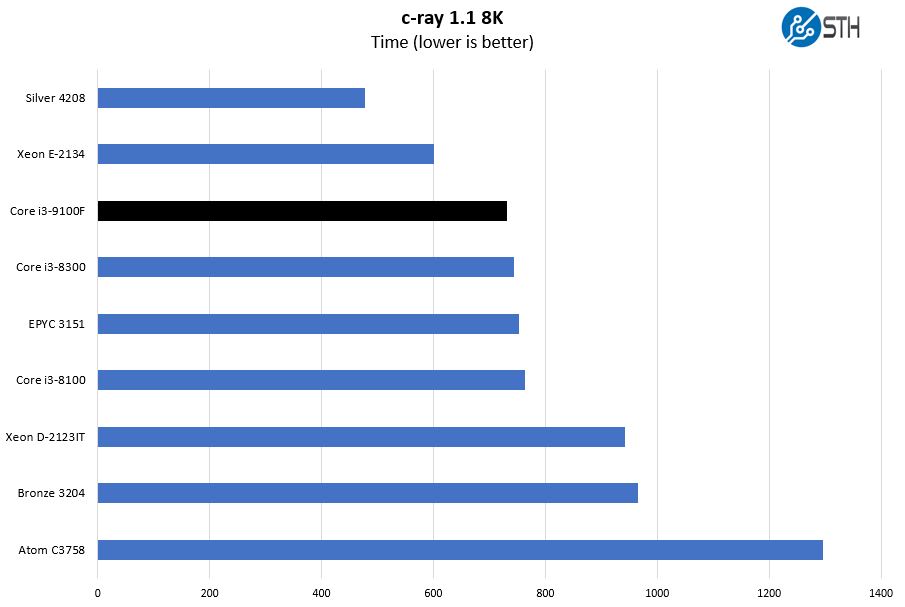
Typically AMD CPUs do well here. One can see the AMD EPYC 3151 embedded part is able to keep pace using SMT for 4 cores and 8 threads versus the higher clock speeds of the Core i3-9100F.
7-zip Compression Performance
7-zip is a widely used compression/ decompression program that works cross-platform. We started using the program during our early days with Windows testing. It is now part of Linux-Bench.
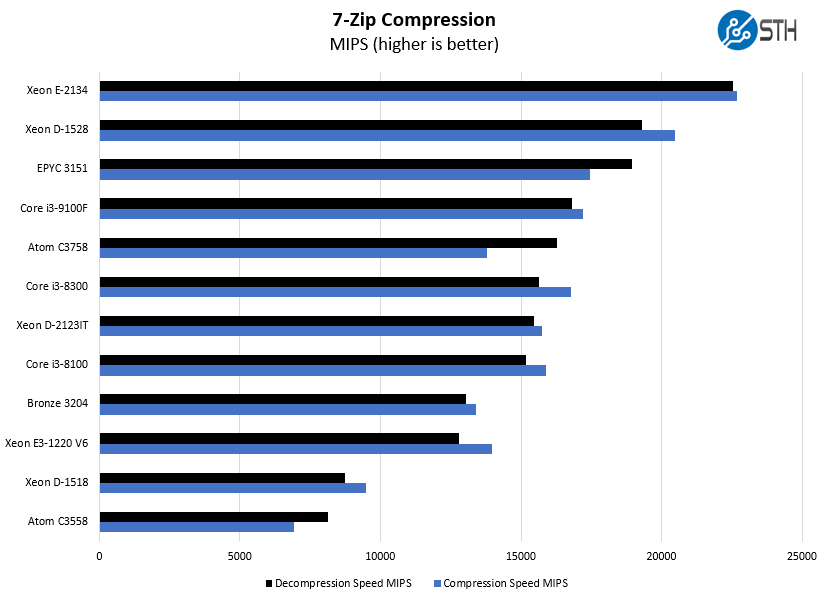
Here we see the Intel Core i3-9100F perform better than the Core i3-8300 by a noticeable margin due to the turbo clock speeds. Indeed, four fast cores are able to outpace the 8-core Intel Atom C3758.
NAMD Performance
NAMD is a molecular modeling benchmark developed by the Theoretical and Computational Biophysics Group in the Beckman Institute for Advanced Science and Technology at the University of Illinois at Urbana-Champaign. More information on the benchmark can be found here. We are going to augment this with GROMACS in the next-generation Linux-Bench in the near future. With GROMACS we have been working hard to support Intel’s Skylake AVX-512 and AVX2 supporting AMD Zen architecture. Here are the comparison results for the legacy data set:
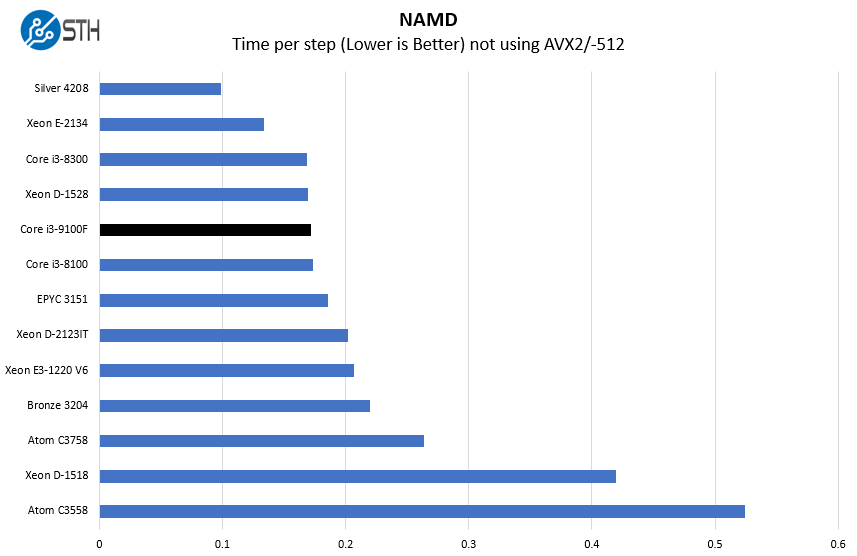
In our benchmarks, you are going to notice improvement across the board versus the previous generation Intel Core i3-8100. That makes sense given the new turbo clock speed feature. It is enough overall to say the Core i3-9100 is better than the Core i3-8100 which we expect. When it comes to the Core i3-9100F, if you do not need the iGPU because your motherboard has a BMC, then it is both faster and significantly less expensive.
Sysbench CPU test
Sysbench is another one of those widely used Linux benchmarks. We specifically are using the CPU test, not the OLTP test that we use for some storage testing.
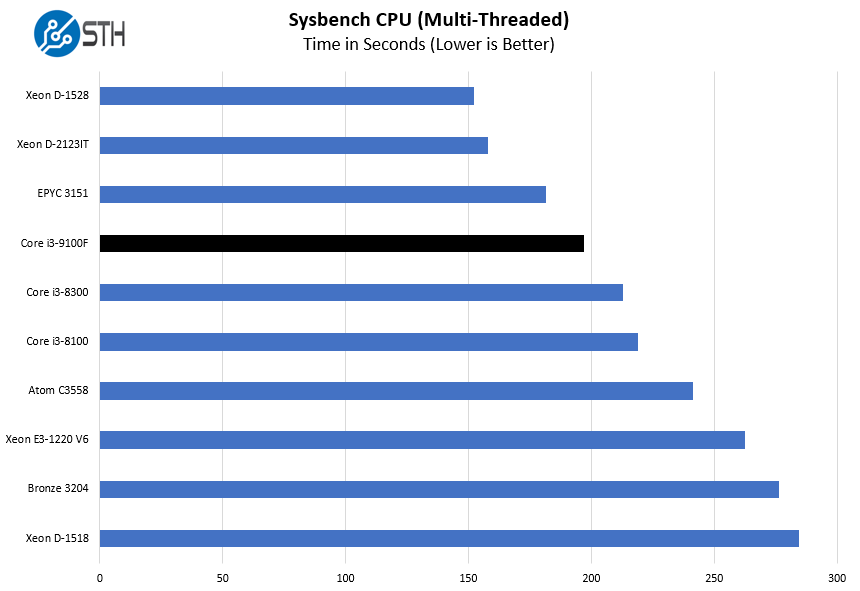
Here are the single-threaded results:
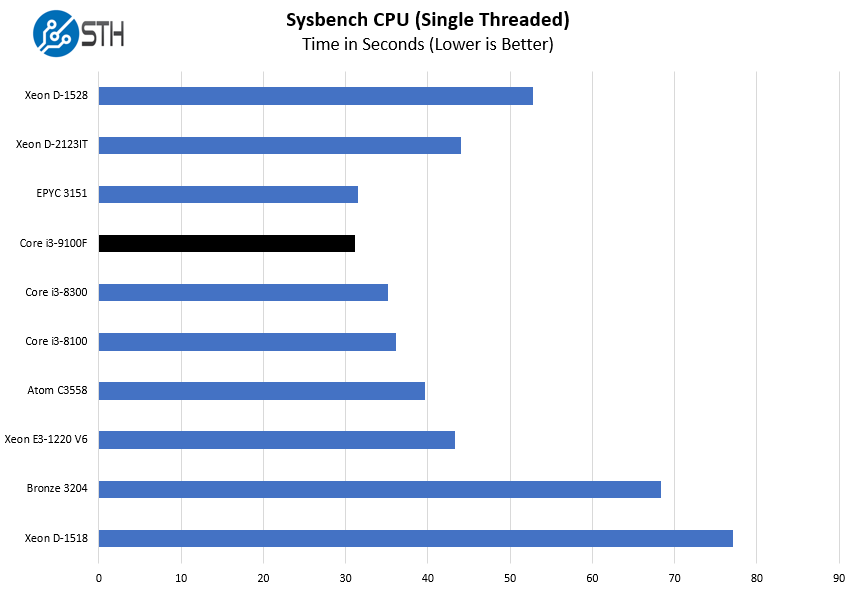
In this comparison group, the Intel Core i3-9100F has solid multi-threaded speeds. When it comes to single-threaded speeds, ordered the same as the multi-threaded results, it comes out on top.
OpenSSL Performance
OpenSSL is widely used to secure communications between servers. This is an important protocol in many server stacks. We first look at our sign tests:
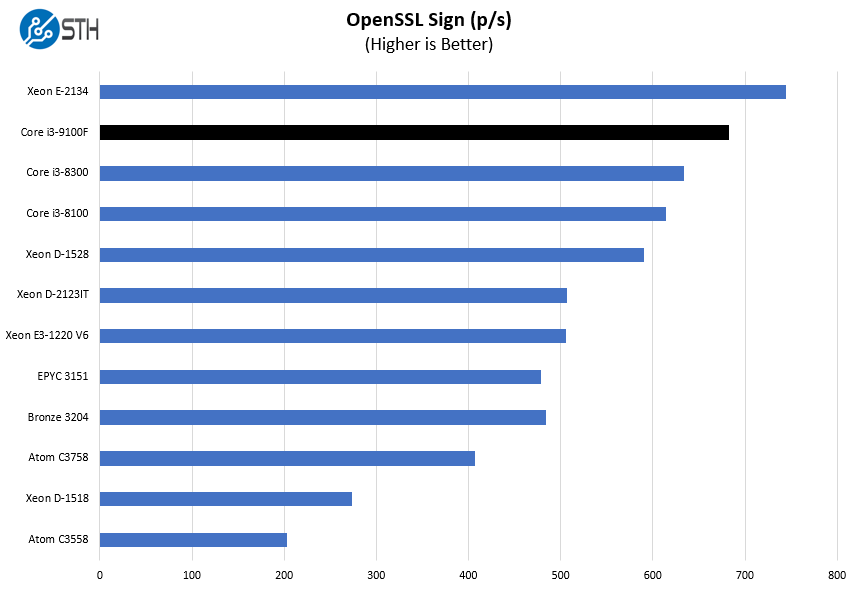
Here are the verify results:
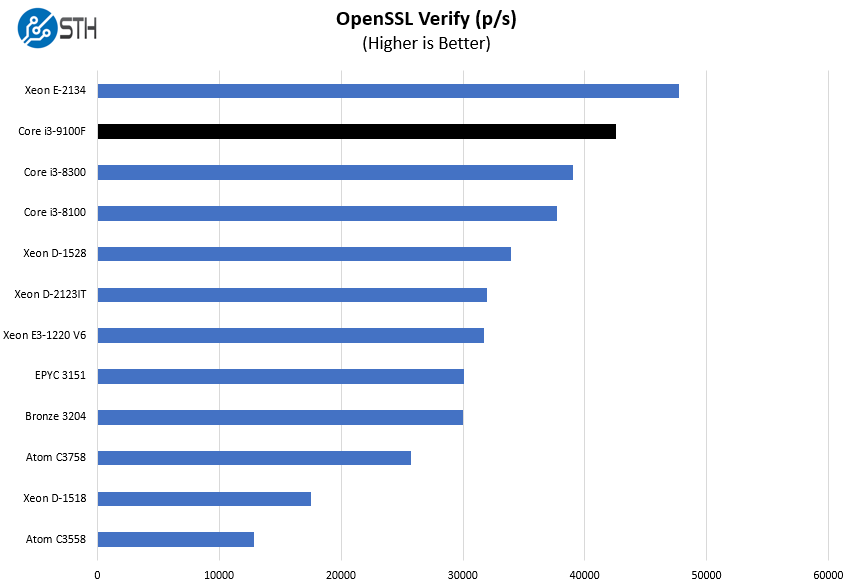
We were slightly surprised to see how much better the Intel Core i3-9100F is doing in this than the previous generation. We also have some of the Intel Xeon D results like the Xeon D-1518 and Xeon D-2123IT here to show how the Core i3-9100F compares to the embedded market.
UnixBench Dhrystone 2 and Whetstone Benchmarks
Some of the longest-running tests at STH are the venerable UnixBench 5.1.3 Dhrystone 2 and Whetstone results. They are certainly aging, however, we constantly get requests for them, and many angry notes when we leave them out. UnixBench is widely used so we are including it in this data set. Here are the Dhrystone 2 results:
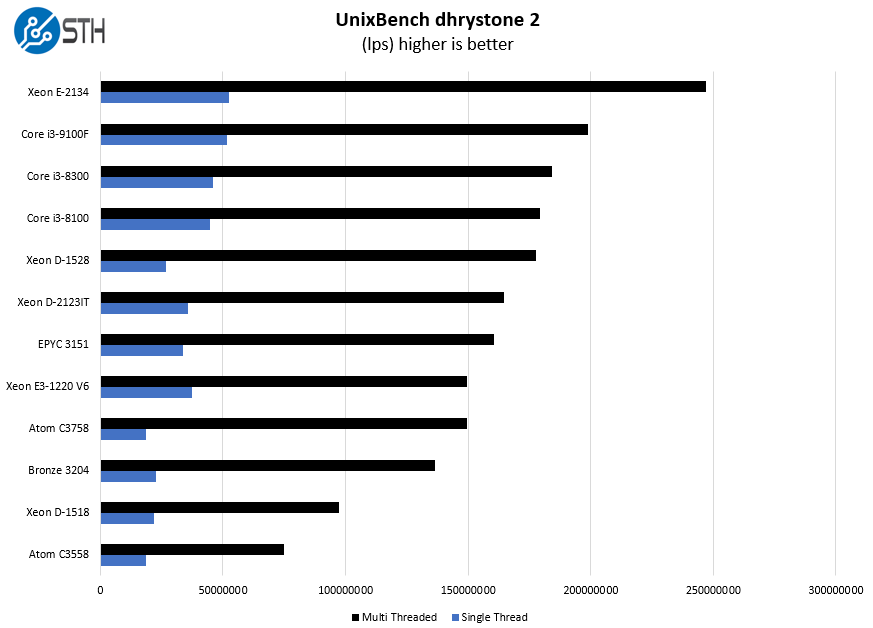
Here are the whetstone results:
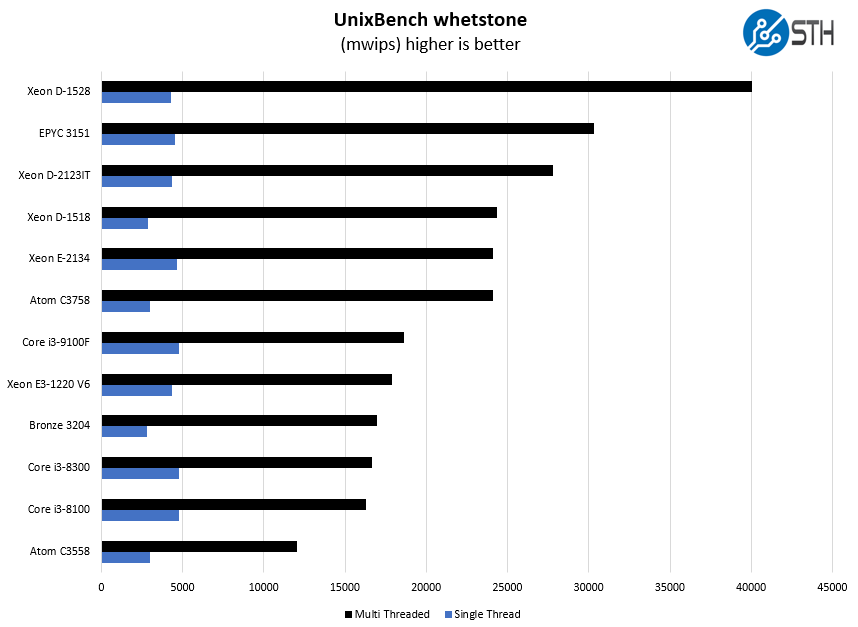
One of the simple items that the Core i3-9100F lacks is hyper-threading or SMT. It is a four-core, four-thread part. There are scenarios like these where simply not having more threads hurts the chips.
GROMACS STH Small AVX2/ AVX-512 Enabled
We have a small GROMACS molecule simulation we previewed in the first AMD EPYC 7601 Linux benchmarks piece. In Linux-Bench2 we are using a “small” test for single and dual socket capable machines. Our medium test is more appropriate for higher-end dual and quad-socket machines. Our GROMACS test will use the AVX-512 and AVX2 extensions if available.
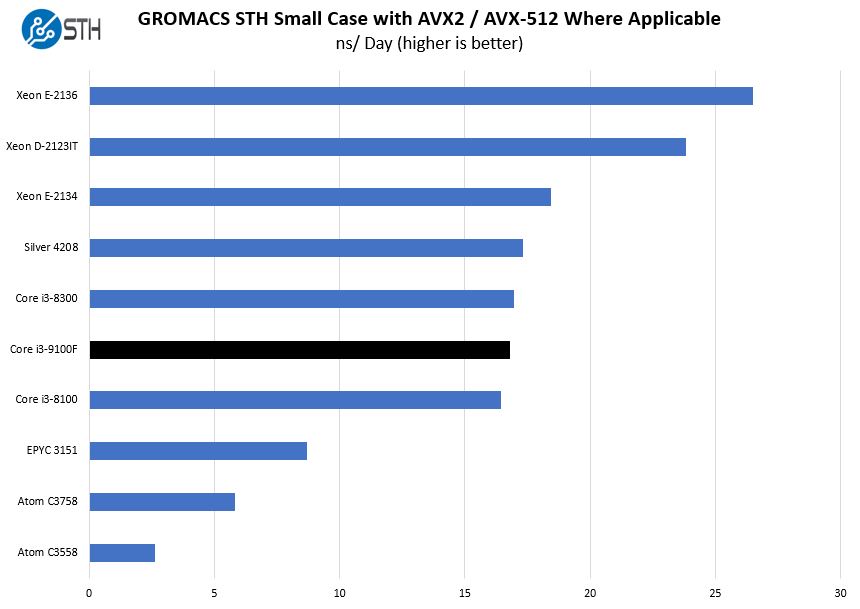
Here the higher turbo clocks are helping a lot. The Intel Xeon Silver 4208 supports AVX-512 but gets throttled by clock speeds when running AVX-512. As a result, the Core i3-9100F actually gets very close to the Xeon Silver’s results.
Chess Benchmarking
Chess is an interesting use case since it has almost unlimited complexity. Over the years, we have received a number of requests to bring back chess benchmarking. We have been profiling systems and are ready to start sharing results:
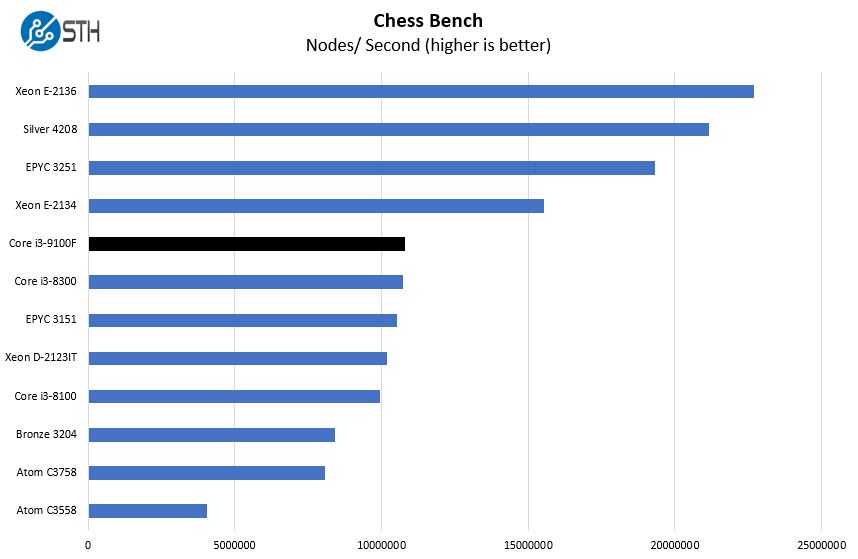
The Intel Xeon E-2134 often performs much better due to Hyper-Threading and the 4 core/ 8 thread capability. While not on this chart, one can see how the quad-core parts without Hyper-Threading fare and extrapolate fairly easily where the Intel Xeon E-2224 that we will review soon falls.
Next, we are going to have power consumption, market positioning, and our final words.

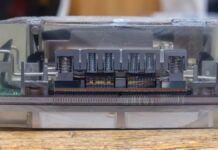
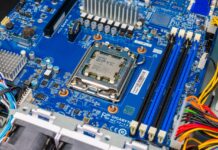

This is nice CPU but the problem I see here is that it is still renamed Kaby Lake B0 silion, therefore all the vulnerabilities like meltdown, spectre etc. apply to those CPUs. They apply to E-2224 as well unfortunatelly. The only fully fixed silicon is R0 stepping that is present only in E-2278G, E-2278GEL and E-2288G. I would love to buy i3 9300T but without security fixes, it is no go for me.
@Petr, agreed. But microcode updates should mitigate those issues?
Does i3 9100 has limited PCIE lanes compare to E2224?